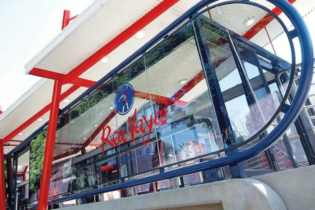The most recent announcements by the South African National Roads Agency Limited (SANRAL) have been that the Gauteng E-Tolls will be implemented from February 2012, following a period where the system needs to ‘go-live’. For the system to be tested by the ‘go-live’ period, SANRAL requires that all future users purchase an E-Tag and register in the system.
SANRAL will commence with the registration and issuing of E-Tags from 01 November 2011 (or soon thereafter) to ensure that a reasonable number of vehicles are registered for the ‘go-live’ test phase.However, the Road Freight Association (RFA) has received no response from SANRAL in terms of its recent request for further discounts on the proposed toll tariffs or enquiries into the creation of new categories to accommodate medium sized freight vehicles in line with the tolling structure implemented by other toll-concessionaires across the country. The RFA has also had no further response from SANRAL in terms of the following unresolved queries/issues relating to of accountability for key account holders (and individual E-Tag owners): • Dispute process: there is no process associated with transactions that appear on your account which you may wish to challenge/query.
• Toll enforcement: no finalisation has been reached in terms of how defaulters will be dealt with as Administrative Adjudication of Road Traffic Offences (AARTO) cannot deal with these in their current form.
• Violation processing: SANRAL intends to prosecute once a number of tolls are outstanding, but this is contrary to common law (prosecution must happen when an offence is committed).
• Standard contract: this contains clauses that allow SANTRAL to blacklist account holders and make account holders responsible for tolls, irrespective of the risk of fraud.
• Cloned/false number plates: no system has been created to ensure that victims of cloned number plating are not unduly prejudiced.
• Access to personal account: SANRAL has not submitted guarantees that registered accounts will not be accessed for fraudulent activities.
• Payment deadline: SANRAL requires full settlement of tolls within 07 (seven) days of the transaction (business practice is 30 (thirty) days). In addition to the above, the following two items are cause for great concern: • Individuals/companies that propose to utilise a bank to process toll fees (as is currently the case in other toll-road situations) will only receive their statements 30 (thirty) days after payment and will then need to query transactions with their banks (where necessary). The banks will then need to query with SANRAL and there is no proposed process for this part of the transaction (but banks will settle with SANRAL every night at 12:00, so you will, in effect, have paid and still be liable).
• Should you decide not to register for an E-Tag (there is no ‘manual’ process), SANRAL will not send you an account in the mail and will just hand over the offending registration details to a violation processing centre, which will then take action to enforce payment. This is unacceptable as users must be given the choice of how they will pay and not be confined to a single process that is beneficial to SANRAL only.
Register or don’t register?
Numerous queries have been received from members as to whether they should register and purchase E-Tags when these are released.





